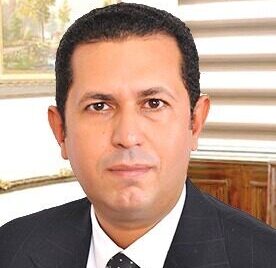The conditions of the Egyptian citizen remain the top priority of President Abdel Fattah El Sisi, even amidst the most difficult economic circumstances Egypt is going through. The state is currently grappling with enormous economic challenges imposed on us from the Covid-19 crisis, the Russian-Ukrainian war to the Israeli war on Gaza – all have led to rising prices of energy and commodities.
Despite this, the president is keen on following everything relevant to the life of citizens to relieve their suffering and ensure a decent life for them.
Since the health of Egyptians is of top concern for the president, he met with Prime Minister Moustafa Madbouli and Health Minister Khaled Abdel-Ghaffar to review work in progress on national health projects, notably mainly the upgrade of the Nasser Institute to become a global medical city.
Other projects reviewed during the meeting included the new Central Laboratories Headquarters, Menouf Cancer Hospital and Om El-Masreyyin Hospital Development Project. This is in addition to the Medical City project, which is affiliated to the General Authority for Hospitals and Educational Institutes that will be established in the New Administrative Capital.
President Sisi was also updated on developments in the implementation of state-funded treatment programmes, which issued more than four million treatment decisions in 2023, at a total cost of LE22 billion, benefiting 2.5 million patients. The meeting also discussed presidential initiatives for public health, including the initiative to end waiting lists for surgeries, which resulted in over 2 million operations since its launch.
Amidst the enormous domestic and external challenges facing the country, the suffering of our Palestinian brethren is occupying the mind of President Sisi, too. During the meeting, the president lauded the noble role of the Egyptian health sector in support of the people of the Gaza Strip, as part of Egypt’s unyielding efforts to alleviate their suffering.
In this regard, the president called for continuing the introduction of medical support to Gaza, where a plan was put in place for referral hospitals, including 47 hospitals in eight governorates. More than 2,200 injured Palestinians were received, and more than1,200 operations were performed. Additionally, health and treatment services were delivered to those transiting the Rafah crossing.
The president is working tirelessly to relieve the economic burdens from Egyptian citizens and ensure that they are leading a decent life. In his efforts to solve the current dollar crisis, he rejected all foreign dictates to resolve the crisis. Instead, he came out with well-studied, practical solutions, taking advantage of Egypt’s resources to open up new investment opportunities and shore up foreign currency reserves. News of an imminent injection of dollars into local banks as part of a set of investment projects has led to a dramatic fall in the price of US dollar against the Egyptian pound in the parallel foreign exchange market. The dollar-pound decline is also attributed to the announcement that Egypt is nearing a new financial support package from the International Monetary Fund (IMF). Additionally, the Egyptian security authorities are tightening the noose on manipulative traders of dollar in the parallel market.
These latest developments prove that Egypt’s economic crisis has been brought about by some entities to compound its economic pressures, coupled with the attempts of some persons to make high gains at the expense of Egyptians via trading in the foreign currency outside the national banking system, causing huge losses to the state’s treasury.
Mohamed Fahmy is the editor-in-chief of The Egyptian Gazette and Egyptian Mail newspapers






Discussion about this post